
 Flash News
Flash News
EULEX mandate in Kosovo extended until 2027
Drug trafficking network dismantled, 11 arrests in Foggia, an Albanian at the center of the investigation
The race for the head of the BKH, the deadline for applications ends today
He injured the married couple in Rrogozhina, here is who the perpetrator is
He injured his neighbors with a gun, the perpetrator surrendered to the police
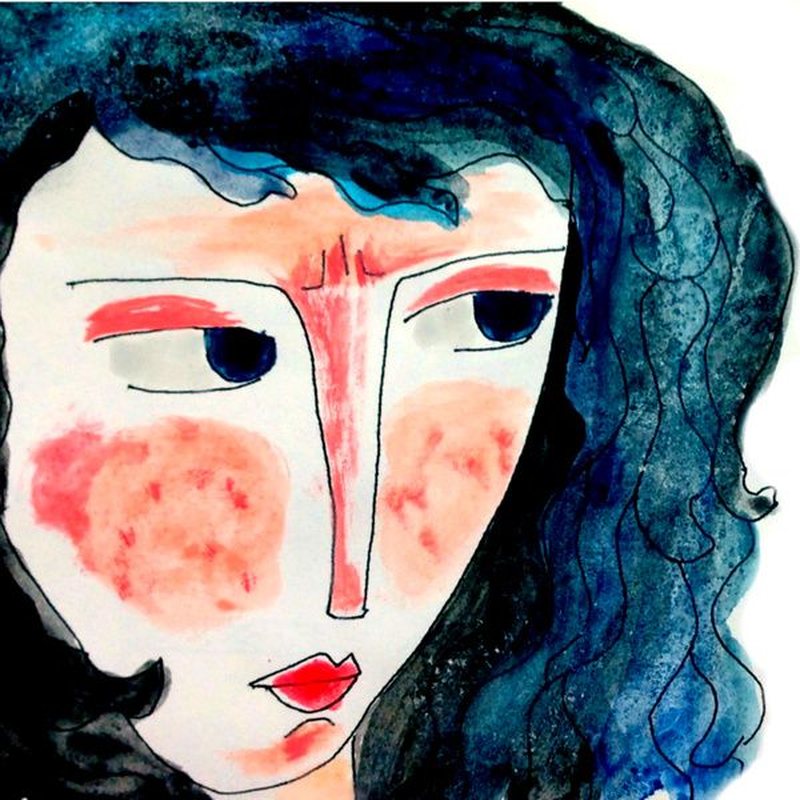
by Martin Taka
"After I went back to school, everyone looked at the marks I had on my body, where the 'artist' was my father." This is how Emili, a 20-year-old girl who did not have such a peaceful adolescence, expresses herself. When she was in her first year of high school, Emili started dating a boy who lived near her neighborhood. After a while of the two hanging out together, Emili's family discovered their daughter's secret affair. Without thinking twice, Emili's father clashed with the family of the boy who loved his daughter, a fight that became the talk of their small town. From that day on, nothing was the same for Emili. She began to close herself in on herself and no longer leave the four walls of the house. Not only that, but her father also forbade her from using her phone. Desperate by this, Emili decided to contact the boy she liked again. They began communicating secretly again, but the father again found out, and this time he used violence against his daughter, not against the boy's family.
This is not an isolated story in Albania in the 2020s, where the dominant form of family is still patriarchal, where the husband and father “rule”. The so-called “man of the family” exercises control over children, mainly girls, from a young age. The typical standard of Albanian society is a girl who is not allowed to have a boyfriend; it is impossible for the family and father to perceive that she also needs to develop her dreams, desires, and needs for a social and intimate life. Psychotherapist Sonila Meçaj says that Albanian society is a patriarchal society with pronounced male-dominated features, oppressed by the isolation of feelings within the individual and the family as a result of communism.
For many Albanian families, the girl is still seen as the honor of the house; she has no right to develop feelings for someone at a young age, as for Albanian parents what other people say is more important than the wishes and happiness of their daughter. The girl is 'embarrassed' the moment she forms a relationship with a boy, while the opposite happens in the case of the boy. Is this due to the pronounced patriarchy in Albanian society, thinking that girls spoil the image of a healthy family, and without any stain of shame and honor, while boys show virility and reinforce it?
According to Ms. Meçaj, “The Albanian family still continues to see love as a feeling that is only associated with the institution of marriage and as a feeling from which girls must be protected as it poses a danger. This danger is fueled by the equally social role that is assigned to the boy and the man, where an honest and worthy girl to marry is one who has little or no love relationships, while a man is one who is able to find a partner and possibly even when married to continue to have success with romantic sexual relationships.”
Given that the most communicative mass media in "deep" Albania, where civil society initiatives may not be able to reach, the role of the media remains primary.
There have also been media initiatives over the years that are fighting gender double standards in Albanian society. In 2019, Tirana Hub launched a social media campaign called 'Know! Report!' that aimed to challenge stereotypical and sexist portrayals of women in Albanian media and advertising. This campaign collected advertisements and articles from all media outlets in Albania and created alternative galleries where sexist messages were replaced with messages that promote equality. Meanwhile, the AMA (Audiovisual Media Authority) has amended the Broadcasting Code for Audiovisual Media in Albania to include a chapter dedicated to gender equality and non-discrimination, with the aim of improving the portrayal of women and girls in the media and overcoming stereotypes. Also, the "Voices of the Youth" movement has revealed through a study that gender stereotypes and the representation of traditional gender roles in the media increase the risk of violence, especially against women.
However, while these initiatives work for change, many girls like Sara continue to face double standards in their families. Sara, too, had an age “floor” for love. According to Sara’s parents, “you can’t have a boyfriend before you finish high school because you’re immature in adolescence.” They told me that “I’m small, I’m a slut and it’s a shame, while my brother, who is in his second year of high school, has had two girlfriends and my parents know about it. And the beautiful thing is that my dad says to his brother: ‘Why don’t you make it three!’” Sara recounts.
"These cases not only make girls stop sharing with their families, not seek help in case of need and danger. Above all, they impose a deep sense of guilt on girls for the fact that they are, exist and have feelings. I think that the reaction of the patriarchal family is different when it comes to boys and girls in terms of mistakes, violations of rules and morality. But essentially, the attitude they show towards the feeling of love is equally problematic for both parties," Ms. Mecaj further explains.
While these harmful double standards continue to exist in many Albanian families, several initiatives are actively working to transform these attitudes. The Young Men Initiative, which has been operating in Albania since 2013, has established clubs in high schools across the country. These clubs include both boys and girls, creating spaces where teenagers discuss and challenge traditional gender expectations.
According to the Innovation in Politics Institute, this initiative has expanded its activities to include around 28,500 young people from Kosovo, Serbia, Bosnia and Albania to create sustainable, non-patriarchal and harmonized gender norms. The program focuses on helping boys understand the harmful consequences of widespread patriarchal norms, and encourages them to reflect on their role and become active in promoting gender equality among their peers.
Also, within the framework of the National Strategy for Gender Equality 2021-2030, the Albanian government, in collaboration with UN Women and UNDP Albania, is implementing policies and programs that aim to engage men and boys against harmful practices, creating a new approach that addresses the problem from both sides and includes both men and women in the discussion on gender equality.
These initiatives are good examples to start with, but the broad social impact is not yet felt. The transformation of a society is slow and requires more resources and attention, media, institutional and sources.
But the struggle to rebel against patriarchal reality is the same for boys as it is for girls. One such is Fjona, a 21-year-old girl who in recent years has come out against the backward mentality of her family. Fjona began to confront her parents when they did not like the fact that she had a boyfriend. "They told me to focus on school and grow up and that I would have time for romance soon, but I didn't care what they said. Naturally, I went against the man I liked, and I had fierce arguments with my father. For him, a girl should not have a romantic relationship until she is old enough," says Fiona.
Even though I didn't pursue higher university studies directly after finishing high school, I left my family together with my boyfriend. We chose to go to Tirana and live there. We found a small house near the Faculty where I would study in the future for at least three years. Of course, my family was alarmed at first about this, but it was too late," she says happily. "I have already started talking to my family again and the situation has calmed down. My father has accepted the fact that I have a boyfriend and that I live with him far from them. You have to fight for the things you really want in this life."
Notes:
-The names of the girls in the article have been changed to protect them from identification.
-The Young Men Initiative was contacted for this article, but by the time of publication we had not received a response.
-For the research part of this article, assistance was sought from AI.
Latest news


Couple injured in Kavaja, police find firearm hidden in wall
2025-06-06 19:05:19

EULEX mandate in Kosovo extended until 2027
2025-06-06 17:58:20
These are the 3 zodiac signs that will be favored in the next decade
2025-06-06 17:50:52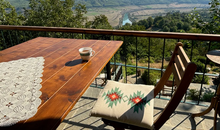


Anthropology
2025-06-06 17:06:00
EU supports International Criminal Court after US sanctions
2025-06-06 16:47:51
Gonxhe ignores concerns about Spaçi and defends the continuation of the works
2025-06-06 16:31:42
Providing online services, report: Institutions, delays in update requests
2025-06-06 16:24:10

The head of the Vlora Cadastre is changed again
2025-06-06 15:58:49
With a rounded belly, Dafina Zeqiri enjoys the holidays with her partner
2025-06-06 15:36:06

Foods that should not be missing from the Eid al-Adha table
2025-06-06 15:04:48
They exploited girls for prostitution in Vlora, 28-year-old arrested
2025-06-06 14:44:26
Israel warns of more attacks in Lebanon
2025-06-06 14:26:30
The race for the head of the BKH, the deadline for applications ends today
2025-06-06 14:15:18
14-year-old girl in Vlora rescued after risking drowning at sea
2025-06-06 14:04:23
Challenge with Albania, Serbian team arrives in Tirana
2025-06-06 13:49:04
He injured the married couple in Rrogozhina, here is who the perpetrator is
2025-06-06 13:34:20

Berisha wishes Eid al-Adha: Blessings to your families and our nation
2025-06-06 13:09:28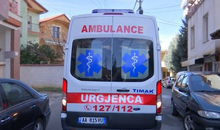
He injured his neighbors with a gun, the perpetrator surrendered to the police
2025-06-06 13:02:47

Tom Cruise enters Guinness World Records
2025-06-06 12:38:48
From orange peels to bananas, discover the foods that help you with stress
2025-06-06 12:28:53


How did the feud between Donald Trump and Elon Musk start?
2025-06-06 11:52:32
The prosecution sends 5 Kosovar citizens to trial for drug smuggling
2025-06-06 11:33:56
21-year-old injured with knife in Saranda
2025-06-06 11:24:10
Kosovo citizens flock to the Albanian coast, long queue from Morina
2025-06-06 11:11:07
Gunfire in Kavaja, shot at a married couple
2025-06-06 11:05:01
Merz: Bashkëpunim i ngushtë Gjermani-SHBA
2025-06-06 10:45:35
A marijuana plantation is found in Cakran, a 24-year-old man is arrested
2025-06-06 10:25:53
Gianni De Biasi shows the formula for how we can win against Serbia
2025-06-06 10:08:57
Hoxha: The CEC was one of the main architects of the destruction of free voting
2025-06-06 09:52:16
Foreign exchange, June 6, 2025
2025-06-06 09:33:01
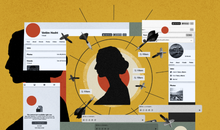

Accident on the new Kukes bridge, three vehicles collide
2025-06-06 08:43:06
Horoscope, what do the stars have in store for you today?
2025-06-06 08:28:14
Clear weather with few clouds, the forecast for this Friday
2025-06-06 08:13:54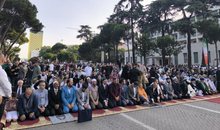

Morning Post/ In 2 lines: What mattered yesterday in Albania
2025-06-06 07:46:29
In trial for tender abuse, socialist MP targets ILD
2025-06-05 22:37:09
Tabaku: The left in Albania has shown with facts that it is against integration
2025-06-05 22:09:44

Uzbekistan qualifies for the World Cup for the first time
2025-06-05 21:14:35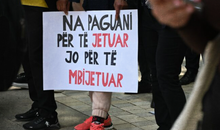
Index: Albania among countries that consistently violate workers' rights
2025-06-05 20:53:35
Accident in Burrel, two vehicles collide, 6 injured
2025-06-05 20:31:27
Discover foods that help you relieve stress
2025-06-05 20:16:34
Kalaja: I have a video where votes were taken from the DP and given to the PS
2025-06-05 19:58:04
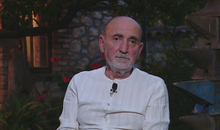

Berisha: The international community does not accept the farce
2025-06-05 18:57:18
Trump after conversation with Xi: US and China will resume trade talks
2025-06-05 18:35:36
Berisha on May 11: 28 MPs were under the patronage of drug cartels
2025-06-05 18:15:44
The session in the Assembly closes, the majority approves the draft laws alone
2025-06-05 17:55:21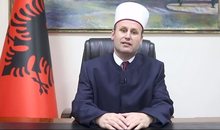
Kurban Bajrami, kreu i Komunitetit Mysliman të Shqipërisë uron besimtarët
2025-06-05 17:29:17
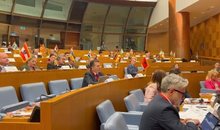
Media at OSCE conference: Organized crime has captured the Albanian state
2025-06-05 16:50:41
Car hits 75-year-old man at white lines in Vlora
2025-06-05 16:42:48

Protest in Spaç, after restoration interventions
2025-06-05 16:27:49
Photo/ Concrete mixer falls into abyss in Ulëz, driver rushed to hospital
2025-06-05 16:15:15
May 11/ Këlliçi: There are attempts to influence the final OSCE-ODIHR report
2025-06-05 16:06:38
Immigration is emptying schools and universities
2025-06-05 15:53:38
Plague breaks out, Kosovo bans import of sheep and goats from Shkodra and Kukësi
2025-06-05 15:48:23
After Tirana, KAS also decides to open the ballot boxes in Dibër
2025-06-05 15:31:03
Tirana is "paralyzed" again, here are the roads that will be blocked tomorrow
2025-06-05 15:20:12
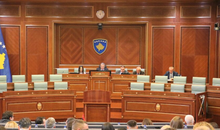


Serbia is coming to Albania tomorrow, here's where it will be accommodated
2025-06-05 14:24:43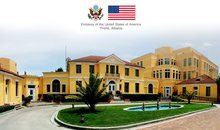
US Embassy updates visa appointment system: More flexibility for applicants
2025-06-05 14:21:01

Drug trafficking with "tentacles" in Europe, GJKKO seals prison for 9 arrested
2025-06-05 13:39:35
Deserting from the socialist ranks, Erion Braçe "becomes" a Democrat
2025-06-05 13:23:49
May 11 elections, KAS decides on a full recount of votes in Tirana
2025-06-05 13:22:28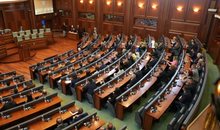

Clashes in the Parliament/ Elisa Spiropali expels Flamur Noka from the session
2025-06-05 13:04:42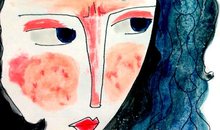
A Girl, Otherwise, A Boy
2025-06-05 12:57:30
Accident at the "Albchrome" factory in Elbasan, three people arrested
2025-06-05 12:54:40


Berisha: The law of farce is that the dictator's votes are always increasing
2025-06-05 12:19:16


The murder saga, Alibej: It started after I gave Talo Çela's location
2025-06-05 11:45:27

Muslims celebrate Eid al-Adha, KMSH announces where prayers will be held
2025-06-05 11:24:50
Bardhi: The EU delegation said that crime controlled the elections in Elbasan!
2025-06-05 11:16:51


Journalists were censored by Spiropali, AGSH: Fraud and institutional propaganda
2025-06-05 11:00:20
Noka-majority: The foundations of your power rest on the bought vote
2025-06-05 10:54:00
